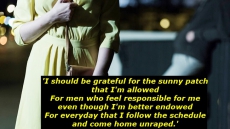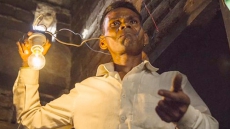The provincial government is making its first move toward a $15-an-hour minimum wage for British Columbia by announcing a 50-cent increase for September and renewing its commitment to a fair wages commission.
In making the announcement today, Premier John Horgan said moving over time to a $15 minimum wage is long overdue in making life more affordable for British Columbians.
“British Columbia’s lowest-paid workers need a raise,” Premier Horgan said. “The action we’re taking will make life better for working parents, seniors, new Canadians, students and more — these are people struggling to get by.”
Effective Sept. 15, 2017, minimum-wage earners will see their pay increase to $11.35 per hour from $10.85 per hour, giving B.C. the third-highest minimum wage among Canada’s provinces — up from seventh position.
Minimum wage in BC going up to $11.35 on September 15th. Labour Minister @HarryBainsSN says this makes #BC third highest in #Canada.
— Marcella Bernardo (@Bernardo1130) August 15, 2017
Fair Wage Comm will work out how we move from $11.35 as of Sept 15 to the $15 via consultation with biz and workers - @HarryBainsSN #bcpoli
— LizaCKNW980 (@lizaCKNW980) August 15, 2017
#BREAKING: @HarryBainsSN announces BC is raising the minimum wage by 50 cents in September, will be $11.35/hour. #bcpoli @Roundhouse983
— Taran Parmar (@Taranparmar983) August 15, 2017
“Today’s increase and our commitment to the $15 minimum wage will benefit almost 100,000 British Columbians who have been getting by on one of the lowest minimum wages in the country,” said Horgan, adding that 62% of minimum-wage earners are women.
Labour Minister Harry Bains said details around a fair wages commission’s composition and terms of reference will be announced in the coming weeks, but that its overarching objective is to get British Columbia to $15 along a planned, responsible path. The commission will submit its first report within 90 days of its first meeting.
“We’ve listened to business owners, who have told us gradual, predictable increases are the way to go to minimize the impact on their businesses,” Bains said. “And they recognize that the move to a $15 minimum wage is good for retention for their businesses, and good for the B.C. economy.”
The time frame, incl when in 2021 we will hit $15 min wage, up to Fair Wage Commission - @HarryBainsSN #bcpoli
— LizaCKNW980 (@lizaCKNW980) August 15, 2017
The min wage is just one component to making life for BCers more livable - @HarryBainsSN along with child care, removing tolls, etc #bcpoli
— LizaCKNW980 (@lizaCKNW980) August 15, 2017
At the same time as the general minimum-wage increase, the liquor servers’ wage is also rising by 50 cents to $10.10 per hour. Other minimum-wage provisions in the employment standards regulation will also receive increases in line with the general minimum-wage increase of 4.6%.
This includes the daily rate for live-in home support workers and live-in camp leaders, as well as the monthly rates for resident caretakers and the minimum farm worker piece rates for harvesters of certain fruits and vegetables.
Quick Facts:
In 2016, the percentage of employees earning minimum wage in British Columbia was 4.8%.
The national average for the percentage of people earning minimum wage last year was 6.9%.
The number of British Columbia employees earning minimum wage in 2016 was 93,800 out of a total of 1,958,600 paid employees (excluding self-employed).
The following is a breakdown of the 93,800 who earned minimum wage in B.C. in 2016: 50,600, or 54%, were youth aged 15 to 24 years
13,100, or 14%, were aged 55 years or older
57,700, or 62%, were female
23,900, or 25%, did not have high school graduation
12,200, or 13%, had a university degree





